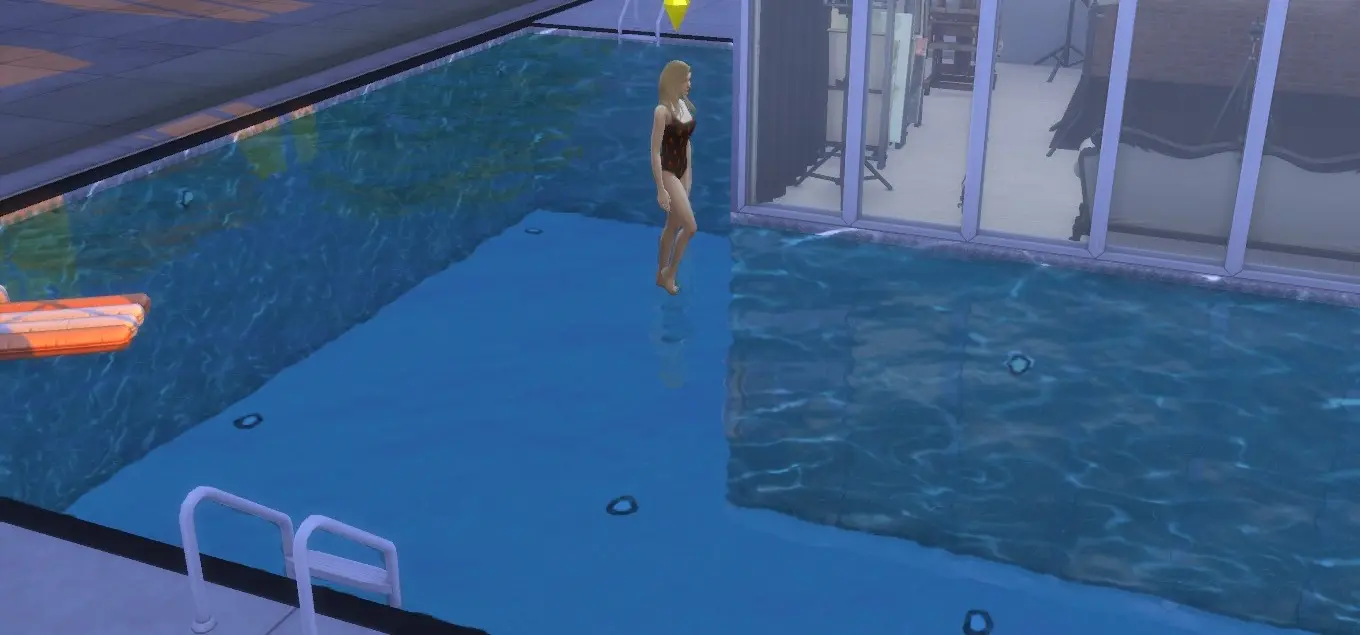Hi there, made you a mod of this community since I'm leaving lemmy and you're the last active user
yo, i'll delete this acc. can you promote /u/[email protected] as mod?
I've been having a blast on Lemmy so far. Just had to unsub from the Brazil community because Brazil has a lot of tankies for some fucking reason.
Can we have something like tankiejerk here? I seriously liked browsing that sub after a bad day with the red fashs.
Hey, just fyi, there are different branches of communism. The most popular ones vehemently oppose Russia, China, and North Korea.
u/CommunistLady is part of the delusional few who are pro-China, but please don't attack communists as a whole because of the loud idiots.
Ótima perspectiva amigo, concordo com ela hehe
mas stalinismo em tl;dr é a vertente comunista mais bélica e autoritária
Eu acho uma escolha duvidosa denunciar a plataforma do lemmy como um todo, mas eu não julgo ele por não ser muito fã de stalinista não.
Me parece só que o cara não entendeu muito bem como as instâncias do Lemmy funcionam, não malícia. Eu concordo com a galera respondendo que seria melhor ele promover uma instância alternativa se ele não gosta dos admins do \lemmy.ml/lemmygrad. N é nada absurdo o suficiente pra sair matando o cara.
O /u/[email protected] tá vazio aqui, pode me linkar os exemplos?
Nem eu, mas a temática me atrai mais que vampiro.
vou ter de contestar. Quem usa o termo tankie são mais os trots doq os liberais, já que o termo foi forjado por eles e depois passou pros socdems. Só daí foi pra fora da esquerda.
meu deus do ceu eu desisto. vc faz esforço pra tentar entender tudo errado como se fosse o gênio da lâmpada. vou salvar meu tempo. tenha uma boa tarde.
No, someone just posted porn in this thread.
I think it says "report created" when someone makes a report in the page you're in. Like, look at the image above you.
What are your favourite challenges?
Title.
I'm trying for a modified version of the decades challenge now. I really like legacies. What about you? :)
Bem-vindo!
Quando eu abrir a minha próxima mesa eu tava pensando entre usar Vampiro v2 ou Demon v2 :D
Ajuda que já temos a UI em PT-BR
Try to visit - he’s on vlemmy.net - I can’t interact without logging in. My account doesn’t work - is it a different account for every instance?
No, but you need to access that user through your instance.
If you want to go to [email protected], go to lemmy.world/c/[email protected] not to lemmy.ml/c/gaming
How do I properly link to a post?
So I know about /c/[email protected] for communities and /u/[email protected] for users, but how do I link to individual posts in a way that won't be a hassle for people in other instances?
Qual RPG você está jogando ou mestrando agora?
Eu: Jogando uma campanha de horror e intriga em Pathfinder 1e :)
What to buy?
My Review of the Entire Game
Hi there, since I have the game fully cracked, might as well help those considering what to buy as I can literally review the entire game.
My scoring system:
- ❤️ - Personal favorite, don't know how people play without this.
- ⭐- Worth getting.
- 💀- Waste of money unless you're really interested in the features.
I'm heavily slanted towards packs that affect the game as a whole. Now to the DLCs.
Expansion Packs
💀 Get To Work - I use nothing from this pack specifically. I play large legacy families so I don't like following Sims to work and I don't play aliens, Baking is redundant with Cooking and Gourmet Cooking. I think this is honestly overrated. Guess it's more interesting if you play only 1-2 Sims.
⭐ Get Together - Winderburg is nice. The armor set and german architecture objects were better before the medieval CCers came to TS4, but it's still nice for historical simmers. The sofas that come with this fit perfectly the aesthetic of "old furniture I had on my farm home". Clubs are nothing something I ever foccused on, but they're nice for simulating religions or lifestyles (throw all of your active family on a club and make it always have a reunion forbidding to play videogames, be mean or whatever).
⭐ City Living - A good dress for my vampires, but the CAS items will make 10% of NPC sims to spawn silly. Nice furniture. I really like Festivals even if I don't attend most, they're a nice touch and entertain easily all of my 8 sims. I don't play on Apartments though.
⭐ Cats and Dogs - I don't usually have pets, but I do like that they exist in the game. Nice build/buy objects for farm houses and kids' bedrooms.
❤️ Seasons - Hands-down my favourite pack. It is nothing flashy, nothing you go out of your way to experience, but this adds so much to the game regardless of your playstyle. This is what my "heart" rating was made for. Holidays are really nice if you play small families.
💀 Get Famous - Scars are nice but too attention-grabbing, some good furniture. I don't interact purposefully with the celebrity or reputation subsystems at all.
💀 Island Living - If you thought City Living had some silly CC, you aren't READY for island living. For real, though, I don't use anything from Island Living. The beach is nice, but it's silly it only exists in one world whatsoever.
💀 Discover University - A nice tattoo, some nice furniture CC (I'm a fan of the minibar). I never interact with the university itself, though, so this is kind of moot.
💀 Eco Lifestyle - CAS items are either really good or really ugly. I hate its gameplay part with a passion though, the voting system has few options and 80% of them are annoying. I like the solar panels. That's it. I still don't use them most of the time because I'm a sucker for Off-the-Grid. And this breaks way too much old CC.
⭐ Snowy Escape - Are you a weeb or japanese history nerd? You'll love this. I really like the build/buy stuff, no CC ever compared to this. Are you not? I still like the Lifestyles. They're not so nice to give a heart rating to this alone though.
💀 Cottage Living - I love this, so why the skull rating? Because I only like this so much because I'm a history simmer, which is a fairly specific thing. It's a really good pack for cottagecorers as well. Completely skippable otherwise, it'll be the thing you play once and forget.
⭐ High School Years - I hate teen drama and I never thought I would like this. I gave it a chance and I completely loved it, though. This is university gone right for me. While university focuses too much in a single sim, this only lasts like 8 sim hours so you can delve into it even with a large family. Some nice CC. Unfortunately it is too modular for a true heart rating, and completely skippable if you don't play teens.
❤️ Growing Together - Do you play with anything that isn't a Young Adult? If yes, you'll find great use of the gameplay on this. This is THE legacy pack as well.
Game Packs
💀 Outdoor Retreat - Stargazing and cooking thing in a fire are the only uses I found for this pack. I never travel to Granite Falls.
💀 Spa Day - I'm not a fan of the wellness stuff, but this is a nice way to relieve Sims from burnout. Also, aquariums. New Age is on par with Classical music to farm inspiration. Those things are all weirdly specific and completely replaceable however.
💀 Dine Out - Another modular pack you'll play once and forget. And the gameplay aspect of it was never fixed and is really hard to profit from. Yikes.
💀 Vampires - Do you really like vampires? Because I played this once and forgot about it. I really liked TS3 Supernatural because I liked tinkering with all the different supernaturals, but this is only vampires, so meh.
⭐ Parenthood - I rated Growing Together higher. Even though I'm a legacy player, this is so weirdly lackluster. If you really like playing families get both but growing together is just flat out better. Also sometimes your child will age up into an Avocado Bear and you'll snort laugh.
💀 Jungle Adventure - Played once, forgot about it. Some nice build/buy objects which are not worth the buy. Forgettable.
💀 Strangerville - Played once, forgot about it. I like the Victorian-style build/buy objects and the Military career, but I really considered if I would get this this even for free because Strangerville stuff randomly popping in your world is annoying. Regardless to say that if I hesitated to get this for free, you won't want to pay for this.
💀 Realm of Magic - Some nice CAS items for my fantasy sims. But, like vampires, this is forgettable if you aren't really into fantasy.
💀 Journey to Batuu - If there was an option to REMOVE this from my game, I would take it.
💀 Dream Home Decorator - I never interacted with this whatsoever, even if I liked playing as an Interior Decorator in TS3, this is an itch easily scratchable by... Building nice houses and uploading them to the Gallery. Which you can do literally for free as the base game is free. Lol.
💀 My Wedding Stories - The build/buy is nice to look at. Also a female suit :3. Gameplay wise this is a joke though. Now you can... Throw rice on weddings. But it is buggy and all your guests will throw rice at the air instead of on your marrying sims. Do you want to pay to throw buggy rice? I don't recommend paying for buggy rice. I only find an use for this whatsoever because I play legacies and I like throwing parties. Also, there is a mod that does just what this pack does.
💀 Werewolves - The selfsame problem with Vampires and Realm of Magic. I like the build/buy though. Scars are too attention-grabbing as well.
Stuff Packs
I won't review everything because, as a PC gamer, I can just get CC from the internet. So I think paying for items is a sorta moot. Everything other than what's being mentioned here is completely skippable. Worse than skull rating.
💀 Spooky - You can throw Halloween parties. That's it.
💀 Vintage Glamour - You can get a butler! I loved this feature in TS3, but in TS4 I don't play rich sims to ever hire a butler anyway.
💀 Laundry Day - Am I a maniac for liking in-game laundry? Probably. Really cute objects as well. I only like laundry in historical games though.
💀 My First Pet - If you really like pets, or if you want a hamster. I hate the hamster cage that comes with this though.
💀 Tiny Living - I like building micro houses for fun. I can still build micro houses even without this. The murphy bed isn't even good for saving space.
💀 Nifty Knitting - Redundant with the cross-stitch skill from Cottage Living. Really nice build/buy objects. I really like this... Because I play a lot of history challenges. Not for everyone.
💀 Paranormal - I don't interact with this whatsoever, but at least it has gameplay on it.
Kits
Similarly to stuff packs, I'll only review kits that are irreplaceable with CC.
💀 Bust the Dust - Similarly to Laundry Day, this gets better with a broom mod (the overreliance on vacuums is silly for me as I grew up in a second world country where until some few years ago vacuums were restricted to richer people). Like, I like this, but it is so lackluster.
💀 Courtyard Oasis - No gameplay attached, but honorable mention since, like how Snowy Escape is the king of japanese objects, no CC compares to the arabic objects from this. Too niche though.
💀 Carnaval Streetwear - Likewise to Snowy Escape and Courtyard Oasis, there are three nice brazilian CAS items nothing on internet will compare to. But if you're brazilian just crack this!
💀 Greenhouse Haven - The windows are nice. I still never used them.
💀 Basement Treasures - For the old TVs you won't be able to find anywhere.
💀 Book Nook - Modular book shelves. You could do that with bb.moveobjects, but this is less hassle.
Lesly Mucutuy, de 13 anos, tem 'natureza guerreira', é inteligente e foi treinada para caminhar na selva, além de já cuidar dos irmãos mais novos, disseram avós.
Acessing mastodon communities through Lemmy?
Hello there, there are some Mastodon communities I like. Unfortunately I hate the Twitter format of Mastodon. I was hoping to be able to access them through lemmy, but "/c/main@community" only returns me a 404 error.
Don't Prep Plots
Great article for everyone to read.
Organizing your Worldbuilding
Organizing your Worldbuilding
Worldbuilding is not my main hobby, but I often end up creating some things for RPGs.
The worst thing, in my experience, is that you have a lot of information to deal with at once when you're trying to create a world, and you don't know where to start or how to connect things.
This is a guide on how to organize your worldbuilding, not how to worldbuild. If you want to learn how economics or religion works, that's not going to be what I'm going to explain here.
My method is simple and depends only on two keywords: CIRCLES and CATEGORIES.
1. Circles
Imagine a country. This country is divided into several states. These states are divided into several metropolitan regions. These regions are divided into several cities. These cities are divided into several neighborhoods. etc.
It's like circles within circles within circles. The larger circle is the COUNTRY, with smaller circles called STATES inside it, with smaller circles called CITIES inside that one, and so on.
And the country is not the biggest circle: There can be several countries within a continent, several continents within a world, several worlds within a stellar community, etc. It will be in your interest to know how far to count.
1.1. Tidying up your circles
The names of these circles and their divisions are completely arbitrary.
There is no rule that says your country needs to be divided into "states". Russia is divided into "provinces". Colonial Brazil was divided into "captaincies".
Also nothing says that your "continent" needs to be divided into "countries".
The only constant is this: Things are divided into more things which are divided into more things.
This is a constant in almost every method of organization that human beings have created, because we love to categorize things: Ecclesiastical offices, business administration, division of land, biological taxa, etc.
1.2 Working with your circles
It is extremely important that the worldbuilding GM knows how to work efficiently. The five days you spent making "Ardya's Hell Realm" are worthless if your players are never going to interact with that place. Worldbuilding for worldbuilding's sake is fun, but it should be left until after the basics are done.
What you want to do is define which circles are worth working in. A campaign of intrigue among the southern burgos of Southeros may only need Southeros and its neighbors to the south. Within Southeros itself, the southern burghs should be worked out in more detail than the northern werewolf clans. Even within a burgh, some cities should be prepared in greater detail than others. So it goes.
"Circles" are simple but powerful.
2. Categories
The structure of circles is very rigid and completely based on hierarchy. You may have noticed that I've only talked about political organizations so far, and that's because I can't place "the Udri ethnicity", "the ninth burgh of Southeros" and "the cult of Ladilua" within the same hierarchy.
This is where categories come in. Categories are sets of things that you can classify as "inside" and "outside" directly.
2.1. Defining the Three Basic Categories
In general you can work with only three categories for most worlds: Geography, Demographics and State.
Geography is what concerns the natural order of the world: Usually this means "what the place is like" (an archipelago, has a forest, is on a mountain, etc.) but subtly includes also what depends on it to be defined ( such as economics and technology).
Demography is everything about the people who live in that place: what they look like, what rituals they do, what they believe in, how they dress, etc.
State are the structures that govern the people: How they are divided, who are their leaders, how these leaders are chosen, how they control the people, etc.
2.2. Basic Categories Order
Categories must be interdependent: They affect each other. A place's climate affects what things grow there, which affects what people eat, which affects how the local government distributes and controls that food.
You should prioritize them in the following order: Geography, Demographics, State. You must first know enough about geography to be able to do enough about demography to be able to do enough about a state.
You might want to start with an aspect of Demographics or the State. Write the idea down somewhere and work on a Geography and/or Demographics that make your idea possible.
2.3 Changing your Categories
Maybe your techno-apocalyptic dystopia doesn't need a state category so much, because everyone lives in independent communes. It is perhaps much more important to track which of the big five technology branches a region uses and what that technology can do. Take out the "State" category and put in the "Technology" category (before "Demography").
But resist the temptation to make a category for EVERY ASPECT different from your world. The method is meant to be an outline, to help you, not to force you to focus on small details.
For the average D20 fantasy kitchen sink world, you shouldn't need more than the three basic categories unless there's a big spin that changes how this world is perceived by the players (like Eberron and Dark Sun, but not like Golarion or Dragonlance).
3. Conclusion
That's it guys, I hope you like it :)
Organizando seu Worldbuilding
Organizando seu Worldbuilding
Eu tava pensando aqui por uns meses porque worldbuilding não é meu hobby principal, mas vai e volta acabo criando algumas coisas pra RPG.
A pior coisa, na minha experiência, é que você tem muita informação pra lidar com de uma vez quando tá tentando criar um mundo, e não sabe por onde começar ou como conectar as coisas. Ficar perdido assim é estressante.
Esse é um guia de como organizar seu worldbuilding, não como fazer ele. Se você quer aprender como economia ou religião funciona, não vai ser o que eu vou explicar aqui.
O meu método é bem simples e depende só de duas palavras-chave: CÍRCULOS e CATEGORIAS.
1. Círculos
Imagina comigo um país. Esse país é dividido em vários estados. Esses estados são divididos em várias regiões metropolitanas. Essas zonas são divididas em várias cidades. Essas cidades são divididas em vários bairros. etc.
É como se fossem círculos dentro de círculos dentro de círculos. O círculo maior é o PAÍS, com círculos menores chamados ESTADOS dentro dele, com círculos menores chamados CIDADES dentro desse e assim vai.
E o país não é o maior círculo: Podem ter vários países dentro de um continente, vários continentes dentro de um mundo, vários mundos dentro de uma comunidade estelar, etc. Vai do seu interesse saber até onde contar.
1.1. Arrumando seus círculos
Os nomes desses círculos e as suas divisões são completamente arbitrárias.
Não tem nenhuma regra que diz que o seu país precisa ser dividido em "estados". A Rússia é dividia em "províncias". O Brasil Colonial era dividido em "capitanias".
Também nada diz que o seu "continente" precisa ser dividido em "países".
A única constante é essa: Coisas são divididas em mais coisas que são divididas em mais coisas.
Isso é uma constante em quase todos os métodos de organização que seres humanos criaram, porque nós amamos categorizar coisas: Cargos eclesiásticos, administração empresarial, divisão de terras, táxons biológicos, etc.
1.2 Trabalhando com os seus círculos
É de extrema importância que o mestre worldbuilder saiba trabalhar de forma eficiente. Os cinco dias que você gastou fazendo o "Reino Infernal de Ardya" não valem de nada se os seus jogadores nunca vão interagir com esse lugar. Worldbuilding por worldbuilding é divertido, mas deve ser deixado para depois que o básico já esteja feito.
O que você quer fazer é definir quais círculos valem a pena trabalhar em. Uma campanha de intriga entre os burgos do sul de Southeros pode precisar só de Southeros e as suas nações vizinhas ao sul. Dentro de Southeros, os burgos do sul de devem ser trabalhados em mais detalhe do que os clãs de lobisomem do norte. Dentro de um burgo, algumas cidades devem ser preparadas com mais cuidado que outras. Assim vai.
Os "círculos" são simples, mas poderosos.
2. Categorias
A estrutura dos círculos é muito rígida e totalmente baseada em hierarquia. Você pode ter notado que eu só falei em organizações políticas até agora, e é porque eu não posso colocar "a etnia Udri", "o burgo de Southeros" e "o culto de Ladilua" dentro da mesma hierarquia. Essas três coisas não são diretamente "hierarquizáveis".
É aqui que entram as categorias. As categorias são conjuntos de coisas que você pode classificar como "dentro de" e "fora de" diretamente.
2.1. Definindo as três Categorias básicas
Em geral você pode trabalhar com só três categorias pra maioria dos mundos: Geografia, Demografia e Estado.
Geografia é o que diz respeito à ordem natural do mundo: Normalmente isso quer dizer "como é o lugar" (um arquipélago, tem uma floresta, fica na montanha, etc) mas inclui, sutilmente, também o que depende disso pra ser definido (como economia e tecnologia).
Demografia é tudo o que diz respeito às pessoas que vivem naquele lugar: Como elas se parecem, quais rituais fazem, no que acreditam, como se vestem, etc.
Estado são as estruturas que governam as pessoas: Como são divididas, quem são seus líderes, como esses líderes são escolhidos, como eles controlam as pessoas, etc.
2.2. Ordem das Categorias básicas
As categorias devem ser interdependentes: Elas afetam umas às outras. O clima de um lugar afeta quais coisas nascem ali, o que afetam o que as pessoas comem, o que afeta como o governo local distribui e controla essa comida.
Você deve priorizar elas na seguinte ordem: Geografia, Demografia, Estado. Você precisa saber primeiro o suficiente de geografia para poder fazer o suficiente de demografia para poder fazer o suficiente de um Estado.
Você talvez queira começar com um aspecto da Demografia ou do Estado. Anote a ideia em algum canto e trabalhe em uma Geografia e/ou Demografia que façam a sua ideia ser possível.
2.3 Mudando as suas Categorias
Talvez a sua distopia tecnoapocalíptica não precise tanto de uma categoria de Estado, porque todos vivem em comunas independentes. Talvez seja muito mais importante rastrear de qual dos cinco grandes galhos tecnológicos uma região usa e o que essa tecnologia pode fazer. Tire a categoria "Estado" e coloque a categoria "Tecnologia" (antes de "Demografia").
Resista porém à tentação de fazer uma categoria pra CADA ASPECTO diferente do seu mundo. O método é pra ser um esboço, pra te ajudar, não para te forçar a focar em detalhes pequenos.
3. Conclusão
É isso, pessoal, espero que gostem :)







